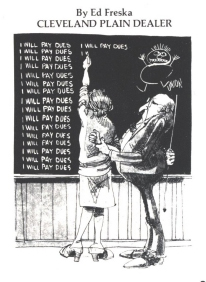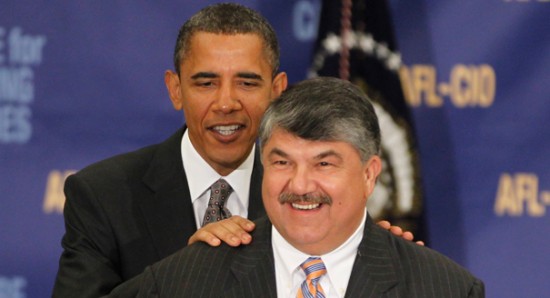American Thinker: Right to Work and Individual Rights
Sylvia Bokor outlines the critical connection between the Right to Work and individual rights:
The Right to Work clause came into existence in 1935, embedded in the Taft-Hartely Law. It means that (a) employees may not be forced to join a union, that (b) employers need not hire only those who agree to join a union, and (c) that employers need not fire employees for failing to join a union or pay union dues.
What does this mean in dollars and cents? Consider one of the worse-case scenarios: the Nelson Index ranks New Mexico, a non-Right to Work state, below the national average. Recently, the Rio Grande Foundation published its study of the effect of Right to Work on business growth and increased personal income in New Mexico. The Foundation concluded that were New Mexico to become a Right to Work state, "[b]y 2020, New Mexico would have 42,300 more people working ... [and that] the state's personal income would be nearly $5 billion higher, and wage and salary income would be $2.2 billion higher."
But why? Why does prohibiting the use of force have such a hugely beneficial effect on economic growth and prosperity?
The National Institute of Labor Relations Research answers the question. Mr. Greer begins his article by correctly identifying the foundation of the Right to Work clause: "Big Labor propaganda against Right to Work legislation and laws rarely focuses on the principle at stake: freedom of association."
Later he states: "... Right to Work laws are not merely or even primarily an economic development tool. Right to Work laws and legislation are really a matter of freedom, not economics."
True. But go deeper still. Individual rights are the foundation of freedom. "Freedom is the absence of force." Without individual rights, freedom does not exist. To the extent one's rights are violated, to that extent is one's freedom is curtailed, ultimately to be destroyed altogether.
By definition, individual rights include the assurance that no man may violate the rights of another with impunity. A culture permeated by freedom is a culture enjoying the essential condition for prosperity: protection and recognition of individual rights.
Philosophically, the Right to Work clause is the recognition of man's right to think for himself, to make his own choices and decisions -- i.e., his right to life.
Personal happiness fuels productivity. Prosperity results.
So why do union bosses continue to block implementation of the RTW clause?

